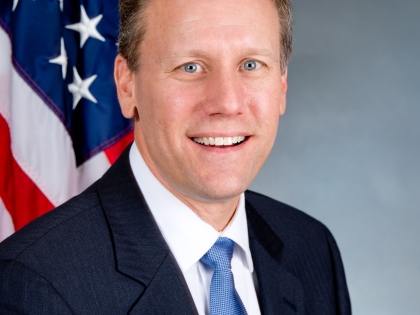
Finally, Civil Confinement Agreement Reached

After years of gridlock, I am pleased to report that legislation has finally passed establishing a system to confine dangerous sexual predators who are most likely to re-offend. The legislation means that after their prison sentences end these sexual predators will be placed in special psychiatric facilities for further treatment and supervision.
For the better part of the last decade, state lawmakers have debated and disagreed about what to do with perpetually violent sex offenders who have served the criminal penalty for their offense, yet remain a serious threat to the community. Despite strong evidence that many of these offenders re-offend and the general acknowledgment that these individuals need further supervision and treatment, the legislature and the last governor were unable to reach any agreement.
Under Governor Spitzer’s leadership, an agreement has been reached that ends this gridlock and makes New York the 20th state to require the civil confinement of predatory sex offenders. This legislative solution is one that I not only supported -- along with a bipartisan majority of lawmakers -- but one that I cosponsored in the Senate.
This measure has long had strong support as an important way to protect the public from the most vicious sexual predators. However, agreement on civil confinement eluded Albany for years due to concerns about due process, disagreement about how broadly civil confinement should be applied, and objections to the lack of treatment options during incarceration.
In the civil confinement legislation passed last week, these concerns were addressed. Now, violent sex offenders nearing the end of their term will be evaluated by a panel of mental health professionals to determine if the offender needs further psychiatric detention. This further confinement will require a recommendation from that special panel, as well as a ruling by a judge and jury -- addressing both the concerns about due process and the disagreement over how to apply the law. The concerns about treatment options were satisfied by requiring all sex offenders to have mental health treatment while serving their prison term.
In addition to the civil confinement component, the new law will strengthen sanctions on sex offenders by establishing a new crime of sexually motivated felony to give our courts the tools they need to incarcerate the most heinous criminals, and by increasing the periods of parole supervision for those who have served their term but are deemed to be less likely to re-offend. The measure will also create a new Office of Sex Offender Management to oversee the evaluation, supervision and confinement of predatory sex offenders.
This agreement is yet another example of how, slowly but surely, the culture in Albany is changing thanks to the leadership of the new Governor and the willingness of members of the legislature to address our state’s greatest challenges.

